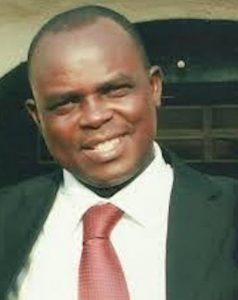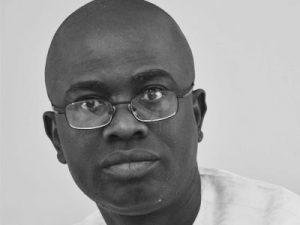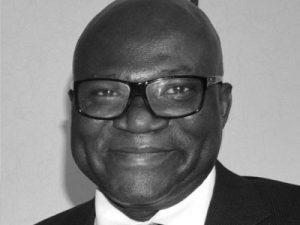By Bola BOLAWOLE
turnpot@gmail.com 0807 552 5533
The Asiwaju Bola Ahmed Tinubu administration has taken our universities and polytechnics off the IPPIS (Integrated Personnel and Payroll Information System); the Councils of these institutions of higher learning are now to be responsible for their running, including the payment of salaries and other emoluments. Enforced enrollment on IPPIS was one of the sore points of the last strike embarked upon by the Academic Staff Union of Universities, which dragged on for eight months. This is a welcome development for many reasons.
The other end-of-year good news is the one that says that ASUU and CONUA are already in discussion to mend fences and present a common front once again. As I have said repeatedly, they need it; otherwise, they will be making themselves easy targets for their enemies. United we stand; divided we fall! ASUU should back down from their high horse; the havoc that Osodeke’s stiff-necked leadership has done to the universities is enough. CONUA and NAMDA should also trash the piece of paper the Presidency awarded them as a so-called registration certificate. This is the time for accommodation, moderation and statesmanship to address, like one man, the problems bedeviling our institutions of higher learning.
IPPIS was a disaster of monumental proportions; it is unfortunate that in discarding it, the Presidency was tongue-tied in describing it as such and offering apologies but went on a rigmarole. It was under IPPIS that an accountant-general of the Federation reportedly embezzled over a hundred billion Naira. Someone said that was just a tip of the iceberg. What of other bigger and smaller thieves! IPPIS sowed grief, sorrow and tears in our institutions of higher learning. Virtually every lecturer has harrowing IPPIS tales to tell. Many died or were scarred for life as a result of shuttling between their institution and Abuja to rectify this or that on IPPIS.
For sure, the decay in our institutions of higher learning has been ongoing for decades; but the eight ruinous years of the Muhammadu Buhari administration brought the parlous state of the universities and polytechnics to a head. Discarding the IPPIS is good but more than that is needed; what is actually required is the declaration of a state of emergency in the education sector, just as is needed in the health sector. It is doubtful if the Governing Council of any of these institutions can be up to the task; therefore, the government washing its hands off the institutions simply by handing them over to their Governing Councils may mean abdication of responsibility. The Federal Government has a lot more to do if our institutions of higher learning are to regain their lost glory.
The first place to start is the recruitment of vice-chancellors and Governing Council members. In those days, men and women of integrity were appointed into the top leadership positions in our institutions of higher learning. The best of the best academics and top bureaucrats were head-hunted; even begged, to assume office. Today, the dregs are mostly the ones who fill many of the offices. People lobby; even offer sacrifices and swear to oaths of allegiance to get appointments over and above their betters. They owe allegiance to politicians and traditional-ruler godfathers and do the bidding of outsiders.
The interest of their students and peers counts for nothing. Once they satisfy the commands of those who got them the office and have some crumbs left to cart home, that is all that matters. Gone were those days when vice-chancellors could speak truth to power; when they could stare the powers-that-be eyes’ down and walk away from office on principles. Many even placed their life on the line! We must return to those days. Once we miss it at the recruitment level, not much will be achieved.

If we get the recruitment right, then, the next hurdle is the appropriate funding of the institutions of higher learning. There are four steps here: The first is subvention from the government. Over many decades, the government has demonstrated its scant regard for education with the meagre sums voted for the sector year-in, year-out. If we understand that no nation develops faster than its level of education, then, we must give education the pride of place it deserves. Because we have neglected the sector repeatedly for years and decades is why we must now declare a state of emergency there; stop profligacy in other sectors so as to release money to be pumped into the education sector. Government funding must improve significantly over the next many years and decades.
The second is the contribution from parents and guardians in the form of school fees. I am bold to say that I believe in the payment of school fees in our institutions of higher learning. I paid school fees in private primary and secondary schools that were four, five or more times higher than what I pay now at the university level. But let provisions be made for those who cannot afford to pay. The Students’ Loan whatever is a good idea; let it be made affordable, and let it cover both public and private institutions.
Thirdly, endowments are a rich source of funding of institutions of higher learning in other climes but this is a practice yet to take roots here. Some of our universities have launched endowment funds but not much publicity has been given to it. Our rich men and women are not sold out to endowments. Efforts must be made to encourage endowments. The institutions themselves have a lot to do in this regard. They must go out. They must reach out. They must bring in the funds. If need be, let them find out how their peers abroad do it. Government should help by giving tax rebates and tax holidays to those who contribute to endowment funds.
Then, the institutions must make themselves relevant to the needs of industries and society at large. Town and gown must not only meet; they must also mesh. But where are the research findings of our institutions of higher learning? What is their contribution to the development of our society? How much of their “book” knowledge is turned into practical tools and projects? What day-to-day problems have they solved? Contracts that their departments should execute should not be awarded to outsiders! They should repair their own broken-down vehicles and change damaged bulbs! What kind of institutions of higher learning do we parade? Feeding bottle higher institutions?
Once the recruitment process is right and the avenues for appropriate funding are aggressively pursued, the next challenge is to plug the gaping holes in the system. Corruption is as endemic in our institutions of higher learning as it is in the society at large. Because many of the vice-chancellors and Governing Council members are political appointees, even card-carrying political party members or sympathizers, they hold their institutions down for political godfathers to milk dry. And because the fish rots from the head, once the other members of the institution see this, they, too, fly on the institution’s coffers and it becomes a free-for-all. To curb corruption in our institutions of higher learning, men and women of probity, honesty and integrity must be appointed into office; otherwise, forget it!
There are two groups of watchdogs that should do the system a world of good – the staff unions and the student union. Unfortunately, both have become enmeshed in the same sesame of corruption. Whatever the staff unions call themselves does not matter! They are all the same. Where many of them are not stealing money, they are leveraging their union offices to blackmail corrupt and compromised university officials to bag unearned promotions. Among them are professors who profess nothing. How can such fellows hold the feet of the university administrators to the fire? Disillusionment is on the rise for the upright among them who are unwilling to join the rat race.
The Student Union is worse! Now we have career students who never graduate from the university. We have grandfathers who are perennial and perpetual undergraduate or post-graduate students. Their target is to become president of the Student Union or that of the national body, the National Association of Nigerian Students (NANS). From that vantage position, they begin to root the Presidency, the National Assembly and Governors’ offices offering themselves as thugs and enforcers. The last attempt by NANS to elect its officers ended in a gun battle by rival contenders. Things have gotten that bad with student unionism in Nigeria. What kind of leaders of tomorrow will such bad eggs make?
To summarize: The prognosis does not look good at all for our institutions of higher learning – but we must start somewhere. Getting rid of IPPIS perhaps provides that start. What we build on it going forward is, however, more important.
- Former Editor of PUNCH newspapers, Chairman of its Editorial Board and Deputy Editor-in-Chief, BOLAWOLE was also Managing Director/Editor-in-Chief of The Westerner newsmagazine. He writes the ON THE LORD’S DAY column in the Sunday Tribune and TREASURES column on Wednesdays in New Telegraph newspaper. He is also a public affairs analyst on radio and television.



















